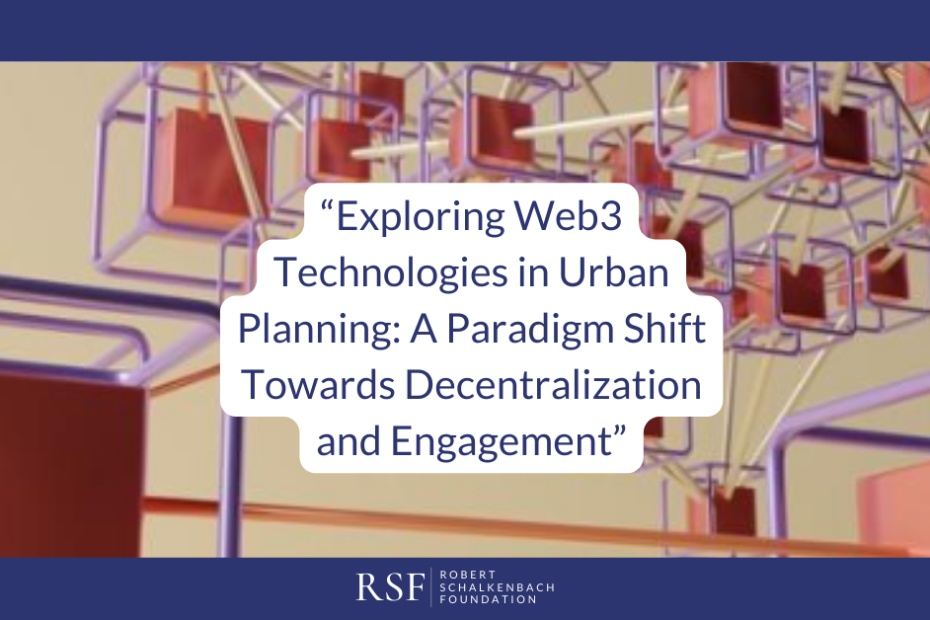The digital landscape is evolving rapidly, and with it, emerging technologies like Web3 are redefining the way we interact with and plan for our communities. At the heart of this evolution lies the concept of a decentralized internet—a Web3 technology—that operates on a network free from monopolistic control of data. This fusion of blockchain with city planning presents a novel approach, addressing limitations of traditional engagement methods while boosting community participation and decision-making processes.
Blockchain, the underlying technology of Web3, serves as a decentralized ledger system. It records, duplicates, and stores actions and transactions across multiple computer networks, ensuring transparency and traceability (Rong, 2023a). Its immutable nature makes it nearly impervious to tampering, offering a promising opportunity to enhance governmental accountability and establish the validity of records, particularly in civic planning.
Projects like BBBlockchain, led by the research team at Technische Universität Berlin’s Einstein Center Digital Futures, have demonstrated the potential of blockchain in documenting management, voting, and proposal initiatives to bolster community trust in participatory processes (Rabe et al., 2021). By providing an alternative to monopolistically controlled information, BBBlockchain emphasizes transparency and trust, offering functionalities like managing documents, facilitating voting, and integrating with social media.
Tokenization stands out as a pivotal aspect within blockchain technology. Digital tokens on blockchain platforms serve as a means of exchange and storage of information across various applications (Christodoulou et al., 2022). These tokens, with inherent value or asset rights, can be leveraged in urban planning to create equitable voting systems and encourage public participation (Tian et al., 2022). For instance, proposals such as Tabi et al.’s (2022) blockchain-based voting model consider geographical relevance and aim for direct, inclusive participation, transforming bureaucratic processes into dynamic, transparent ones.
While Web3 technologies don’t solve all concerns around digital literacy, their features, which promote security, privacy, and transparency, hold promise for transforming current practices in community engagement. Additionally, they sustain engagement by offering incentives, recognition, and rewards to participants, fostering long-term involvement in planning processes.
Looking ahead, there’s a need to explore the practical application of these innovations in urban planning. By delving into existing research and presenting a framework that integrates blockchain technology and smart contracts in the context of urban planning, this blog post aims to introduce a prototype platform applying this framework in a real-world setting. The objective is to extract valuable insights and pave the way for advancements in urban planning and improved public engagement.
Stay tuned for our next section, where we’ll dive deeper into this framework, explore case studies, and highlight the potential impact of Web3 technologies on the future of urban planning and community involvement.
By Justin B. Hollander, Helena Rong, and Aviv Markus, Tufts University

